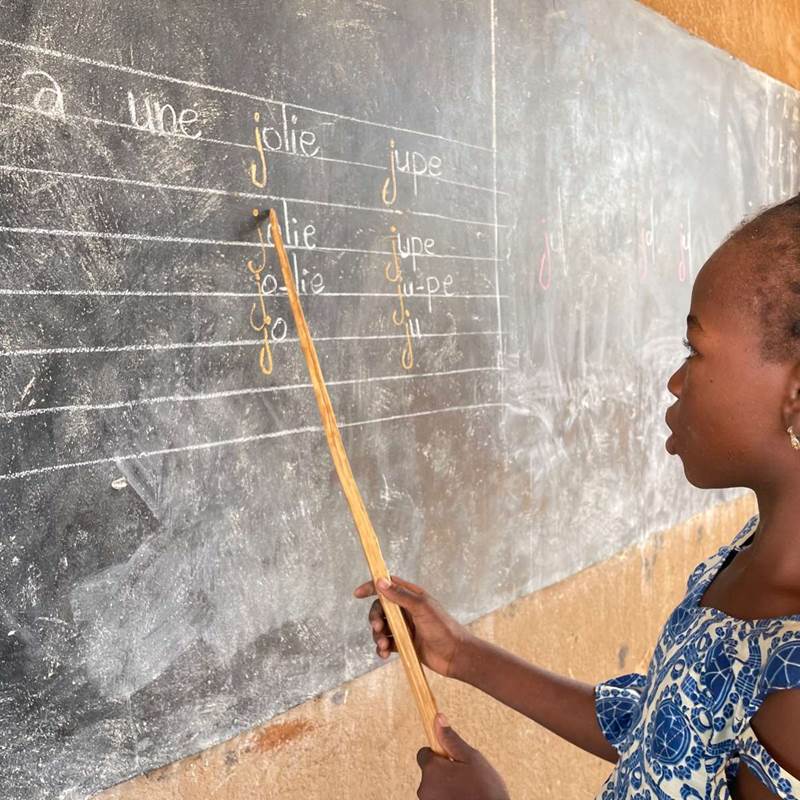SRF Charter
The SRF Vision, mission & commitments

_
SRF Charter
Vision
A safer and more dignified future for all conflict and displacement affected populations in the hotspots of most humanitarian need in the Sahel.
Mission
To provide protection and humanitarian assistance to vulnerable populations in the Sahel, Lake Chad Basin, and East Chad region, by providing funds for immediate relief to affected populations, strengthening local capacities, supporting skilled aid organisations and paving the way for lasting solutions.
Commitments
The SRF is a humanitarian fund designed to support and reinforce principled humanitarian response. Our actions are guided by the humanitarian principles of humanity, impartiality, neutrality and independence, as well as by the imperative of ensuring the centrality of protection in all our actions. As local, national and international humanitarian agencies, we commit to upholding and abiding by the principles and commitments contained within this Charter, as well as the Core Humanitarian Standards on Quality and Accountability and the “Climate and Environment Charter for Humanitarian Organisations” and other best practices (sectoral standards, Camp Management Camp Coordination, Humanitarian Programme Cycle guidance, Joint Intersectoral Analysis Framework and data protection)
1. Protecting and Assisting affected Populations: Protection is at the centre and common to all our actions. The Sahel Regional Fund will prevent, reduce, mitigate and respond to protection risks against affected populations within the scope of our activities. Our actions will be based on the needs of affected populations and include protection risk analysis determining how protection will be taken into account: through stand-alone activities, integrated programming or mainstreaming. Our assistance will be based on the needs expressed by affected populations themselves and will aim to address as many of the basic needs of the most vulnerable as possible. The protection and humanitarian assistance will thus be guided by a needs-based and people-centred approach. This approach will seek to enable displaced affected people to meet their basic needs and to contribute to long term wellbeing through life saving and life sustaining assistance and access to essential services based on their vulnerabilities and capacities.
2. Increased participation and accountability to Affected Populations: We are accountable to the people we assist, our partners and ourselves. We will take responsibility for our actions and provide means, processes and tools to be held accountable vis a vis our actions, principles and commitments. This means we will ensure that participation of affected communities, through their inputs, feedback and voices, sit at the centre of our action and throughout the project implementation. Our actions will systematically take into account vulnerability and inclusion: the specific needs of the most vulnerable will be prioritized, including those needs and people that are the least visible (e.g. women and girls, elderly, those affected by disability and, mental health issues).
3. Scaling up the humanitarian response: We will finance organizations able to scale up current operations and offering substantial and relevant technical and geographical complementarities to address the most urgent humanitarian needs of most vulnerable people and allow for a better value-for-money. We will ensure that rigorous value-for-money analysis and assessment- including the identification and managing of cost drivers- is undertaken as part of the scaling up of the humanitarian response and throughout our action.
4. Adapting responses to evolutive contexts and displacements: We will monitor risks, and wherever possible flex and adapt to maintain relevance in rapidly evolving contexts and humanitarian need. The SRF will maintain relevance through proactive anticipation, use foresight analysis in relation to current and emerging crises and combine this with other data sets wherever relevant.
5. Adapting response to climate change and environmental degradation in integrating climate smart approaches and sustainable approaches into the design of their intervention and by greening their operations.
6. Striving for Humanitarian access in Hard to reach areas: We will work in hard-to-reach places to protect and assist affected populations, targeting selected hot spots of conflict and displacement, as well as striving to assist populations unable to flee. This strategic approach will be based on longer-term strategic anchoring, building acceptance by all stakeholders for our presence and activities and proximity to those in greatest need to ensure that affected people remain at the centre of our operations.
7. Developing Action research, Advocacy and Coordination: We will support improving data and the evidence base using innovation/technology/digital dimensions in compliance with data protection standards. We will reach out to form partnerships with a range of stakeholders to promote operational action improving the quality of our response, evidence-based advocacy and policy dialogue. We will ensure a common monitoring tool is deployed by all partners and consortium members (P21) and will embrace the Joint Intersectoral Analysis Framework, tools and indicators. Coordination with other stakeholders will have the twin intent of mitigating the risk to the perception of principled humanitarian action and of enabling our humanitarian action to have a lasting positive outcome for all affected populations and communities where we intervene. We will ensure that the Fund’s approach is complementary, not in competition with existing humanitarian funds and other humanitarian projects.
8. Paving the way for Sustainable and Inclusive Solutions: We recognize that humanitarian crises are increasingly protracted and complex and commit to contributing to sustainable and inclusive solutions for affected displaced populations and host communities. This will be driven by the commitment of lead agencies to ensure a systematic and effective engagement with local stakeholders at area level and by the efforts of SRF to engage with development actors and develop clear synergy and referral pathways with their intervention. We will work to ensure that the international community, governments and international institutions take (and respect) sustainable measures and provide tailored, context-specific solutions for humanitarian assistance.